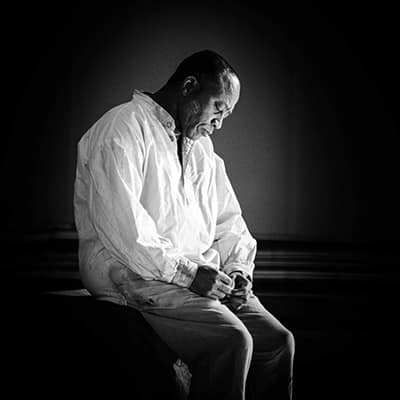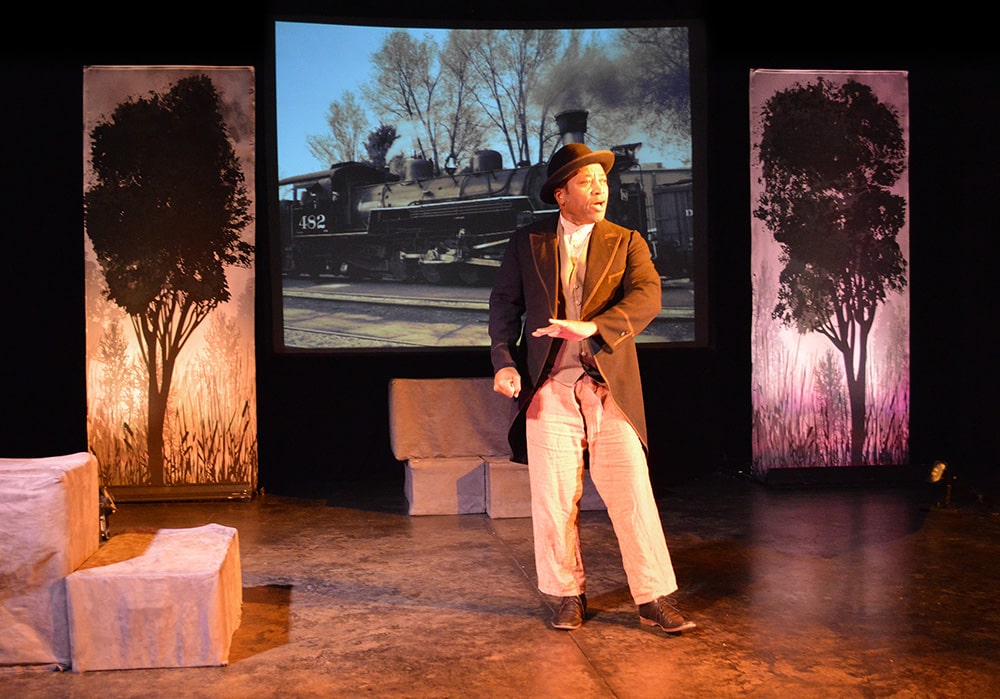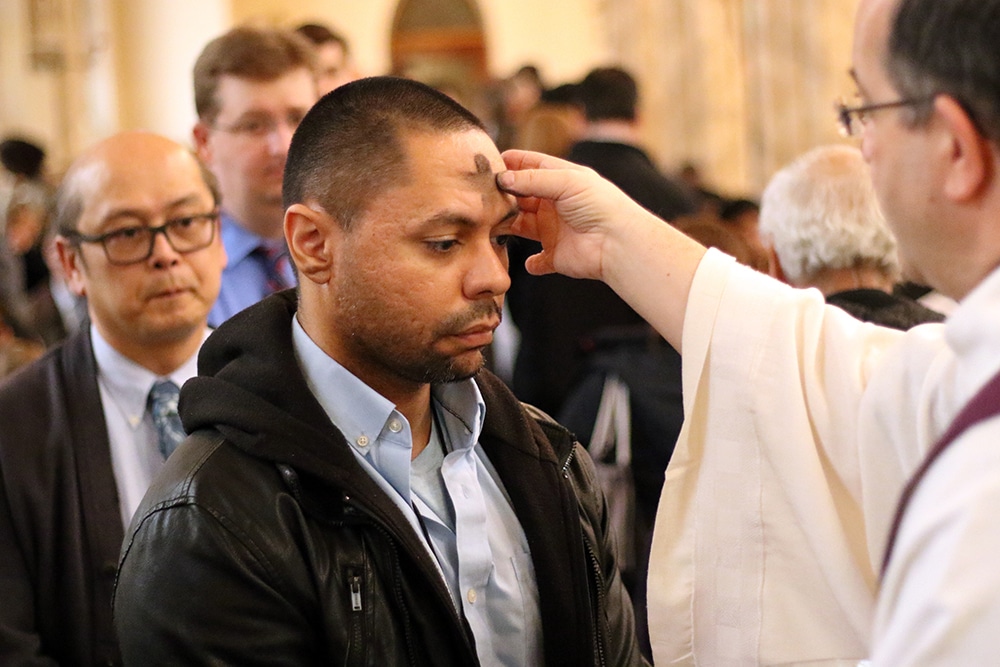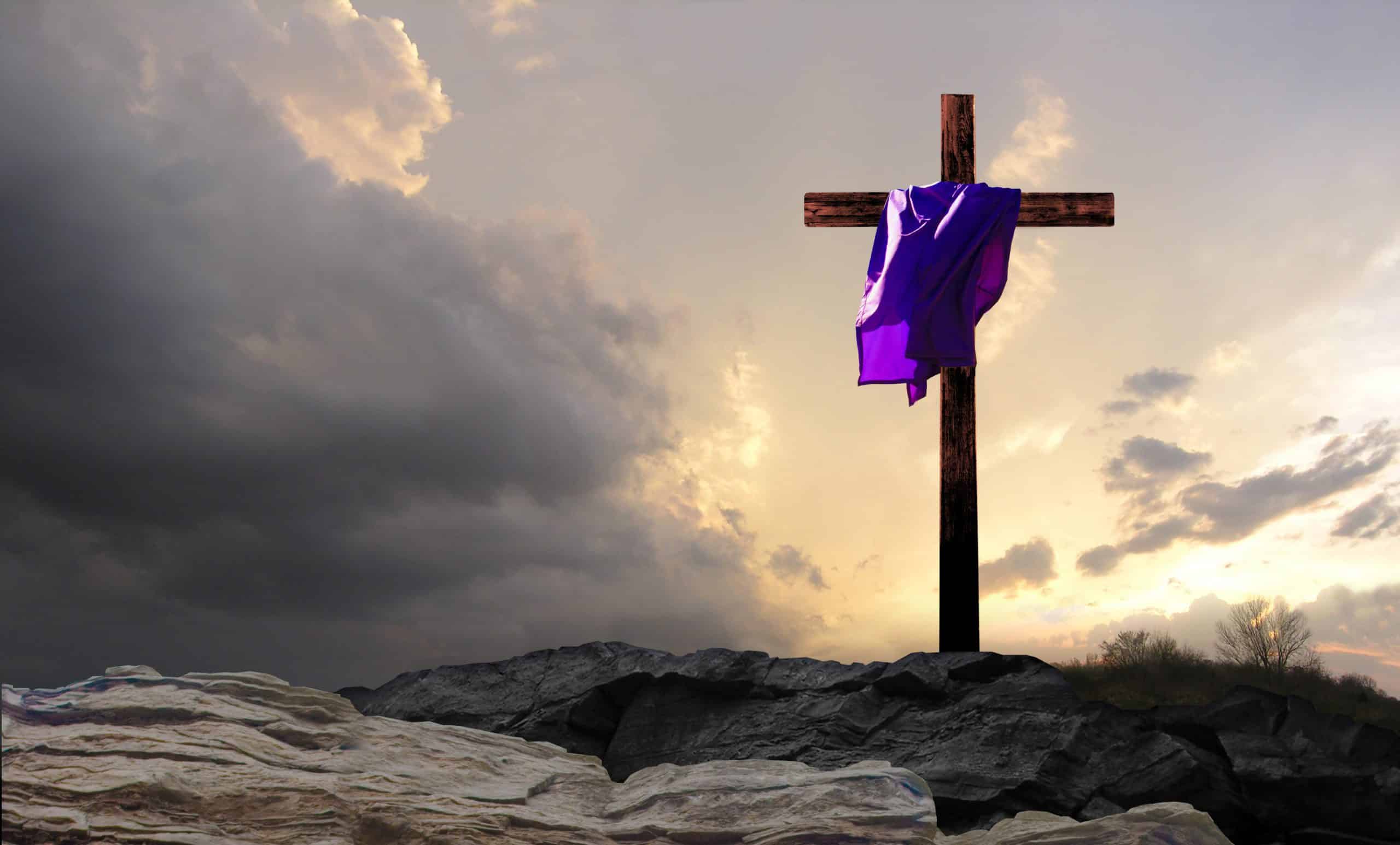Leonardo Defilippis had been leading St. Luke Productions, writing and producing plays and films based on the Scriptures and lives of the saints, for about 30 years when a priest in Quincy, Illinois, suggested he do a project based on Father Augustus Tolton.
Tolton — now the Venerable Augustus Tolton — was born into an enslaved family in Missouri. During the Civil War, his mother escaped to Illinois with him and his brother and sister when he was a young boy. Despite much opposition and many obstacles, he was ordained a priest in Rome and sent back to minister in Quincy, and later in Chicago.
Defilippis knew none of that when Father John Titus, a priest of the Diocese of Springfield, Illinois, made the suggestion. He gave Defilippis a book about Tolton and some prayer cards, and Defilippis went on his way.
He was in his office in Battle Ground, Washington, thinking about what his next project should be — maybe St. John Paul II? Or Archbishop Fulton Sheen? — with Tolton’s prayer card posted near his desk.

“He was looking at me with those eyes of his,” Defilippis said, “and I said: ‘God, what do you want me to do? You want me to do Father Tolton?’ … There was very little documentation because of the time frame. I was fascinated by his perseverance, his patience, his peace. The story was so compelling. I thought it was a powerful story for our times.”
He told the staff of St. Luke Productions that, following up on successful projects about St. Thérèse of Lisieux and St. Faustina Kowalksa, they would write and produce a play about the life of Father Augustus Tolton, whose cause for sainthood was opened by Cardinal Francis George in Chicago in 2011.
“I told them, and they said, ‘Who?'” Defilippis said.
“Tolton: From Slave to Priest” has now played theaters, churches and schools all over the United States for nearly five years, after premiering in November 2017 at the DuSable Museum of African American History in Chicago. Defilippis and Jim Coleman, the actor who portrays Father Tolton in the play, still meet people who have never heard of Father Tolton, but what has impressed them most is how his story resonates.
“What the play is doing is bringing him person to person, heart to heart,” Defilippis said. “It’s creating an emotional reaction, a spiritual reaction among people. I believe he’s not only one of the more important figures in Black history in the Church in the United States of America, he’s one of the most important figures in Black history in the United States.”
Defilippis said he has heard from people who have seen the play who come from Cuba, who come from Vietnam, who come from places all over the world about how their mothers risked everything to get them to a safer place, just as Father Tolton’s mother, Martha Jane Chisley, did.
“It’s universal,” he said.
Chisley had never rowed a boat before she fled and rowed her children across the Mississippi, under fire from soldiers on the Missouri bank of the river. She sought out a Catholic church in Quincy, and a Catholic school for her son. White Catholics objected, and Augustus was driven out of the first Catholic school he attended.
An Irish diocesan priest, Father Peter McGirr, years later invited a teenaged Augustus to enroll in another Catholic school and saw to it that he was safe there.
As he grew, young Augustus Tolton realized he had a vocation to the priesthood, but neither he nor Father McGirr nor the Franciscan priests that educated him in Quincy could find a seminary in the United States that would accept a Black student.
Eventually, he was accepted at the seminary for the Propagation of the Faith in Rome and was ordained in 1886, becoming the first African American priest ordained for the Catholic Church in the United States. The new Father Tolton expected to be sent to Africa as a missionary, but instead, he was sent back to Quincy, where he served from 1886 until 1889, suffering under racism from fellow Catholics, including fellow priests.
He transferred to Chicago in 1889, establishing the Archdiocese of Chicago’s first Black Catholic parish, St. Monica, and bringing his mother and sister to live with him. Father Tolton died in Chicago from heat exhaustion at age 43 in 1897, and he is buried in Quincy.
Coleman, who knew nothing at all about Father Tolton when he auditioned for the role, now feels he knows his subject intimately, and he prays before each performance for Father Tolton to speak through him.
More than once, he said, seminarians have approached him after the play.
“There are seminary students who come up and say, ‘I was ready to give up, but what I’m going through is nothing compared to what Father Tolton went through,'” Coleman said. “It brings tears to my eyes to see that they are praying to Father Tolton for strength.”
Coleman said he does the same, even though he is not Catholic. Father Tolton, he said, is an example for everyone.
“I truly feel his whole life was a miracle,” Coleman said. “That he escaped from slavery and was not caught and killed is miraculous. That he integrated schools in the 1800s was a miracle. That he went to Rome and was ordained and gave his first homily at St. Peter’s is miraculous. That he came back and ministered in Quincy is miraculous.”
For information about “Tolton: From Slave to Priest,” visit stlukeproductions.com.
Michelle Martin writes from Illinois.







